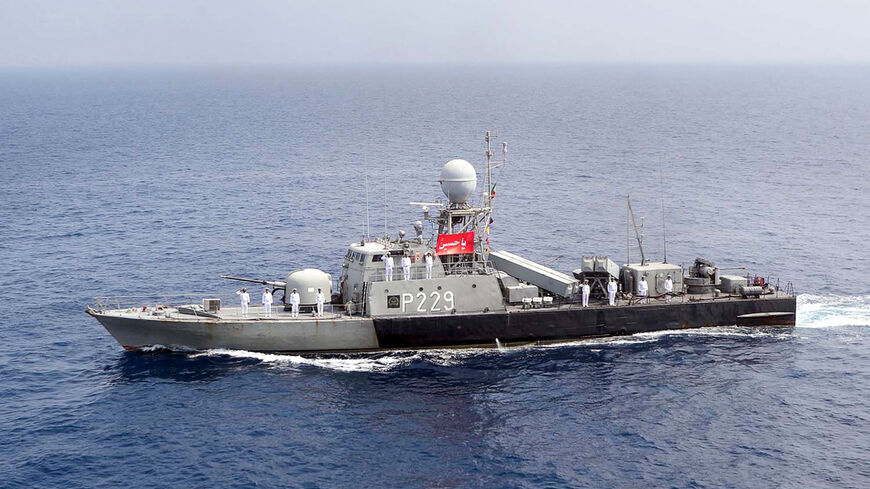The US Navy said an American destroyer and UK Navy frigate responded to a distress call by a commercial ship pursued by fast boats belonging to Iran's Islamic Revolutionary Guard Corps in the Strait of Hormuz on Sunday evening.
The Bahrain-based US 5th Fleet said the guided-missile destroyer USS McFaul and the UK Royal Navy frigate HMS Lancaster received the call just before 5 p.m. local time.
“The civilian crew reported three fast-attack craft with armed personnel approached and followed the merchant vessel at close distance. The fast-attacked craft were assessed to be from the Iranian Islamic Revolutionary Guard Corps Navy,” said the US Navy in a statement, referencing Iran’s elite IRGC forces.
The US also dispatched a P-8 Poseidon patrol aircraft, while the Lancaster deployed a helicopter to observe the interaction. "The situation deescalated approximately an hour later when the merchant vessel confirmed the fast-attack craft departed the scene. The merchant ship continued transiting the Strait of Hormuz without further incident," the US Navy's statement read.
The Associated Press reported that the Marshall Islands-flagged bulk carrier Venture “erratically changed course” while traveling through the Strait of Hormuz at the time of the incident.
The shipping data website VesselFinder indicated on Monday that the Venture was somewhere in the Persian Gulf, having set sail from the port of Mina Saqr in the United Arab Emirates (UAE).
Iranian authorities denied the US Navy's account of the incident, however. On Monday, Rear Adm. Abbas Gholamshahi of the IRGC Navy said that a Marshall Islands-flagged commercial ship had requested assistance on Sunday and that the Iranian forces responded to that, according to the official Islamic Republic News Agency.
Why it matters: Iranian forces have either seized or interfered with at least 16 internationally-flagged commercial vessels in the past two years amid a wider covert conflict between the Iran and the US, as well as between Israel and Iran.
On May 3, the IRGC Navy seized an Panama-flagged tanker in the Strait of Hormuz as it was transiting between two ports in the UAE. The incident caused concern in Abu Dhabi, whose foreign ministry later released a statement saying it had pulled out of a US-led maritime security coalition in the Gulf region, a claim US officials questioned.
In late April, Iran's navy seized the Advantage Sweet, a Panama-flagged tanker bound for the port of Houston in the US. That seizure came in retaliation for a US Justice Department seizure of another vessel carrying sanctioned Iranian petroleum to China, the Suez Rajan, which Iranian forces failed to capture before it got out of range.
The US Navy and other regional and European forces have increased their naval patrols in the Strait of Hormuz due to the Iranian seizures, Al-Monitor’s Pentagon correspondent Jared Szuba reported in May.
Know more: Iran's Navy commander Shahram Irani said on Saturday that his country would form a naval security alliance with Saudi Arabia, the UAE, Bahrain, Qatar, Iraq, Pakistan and India.
US Navy officials have expressed bafflement at the statement. "It defies reason that Iran, the number one cause of regional instability, claims it wants to form a naval security alliance to protect the very waters it threatens," 5th Fleet spokesperson Cdr. Tim Hawkins said Saturday.
Editor's note: this article was updated to include information from the IRGC on the incident in the Strait of Hormuz.








